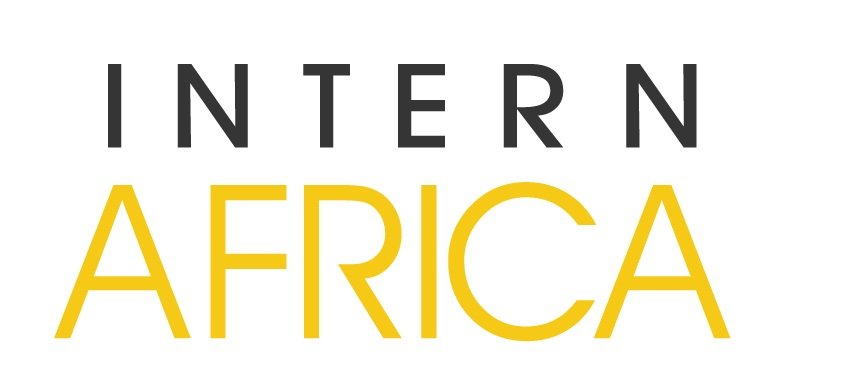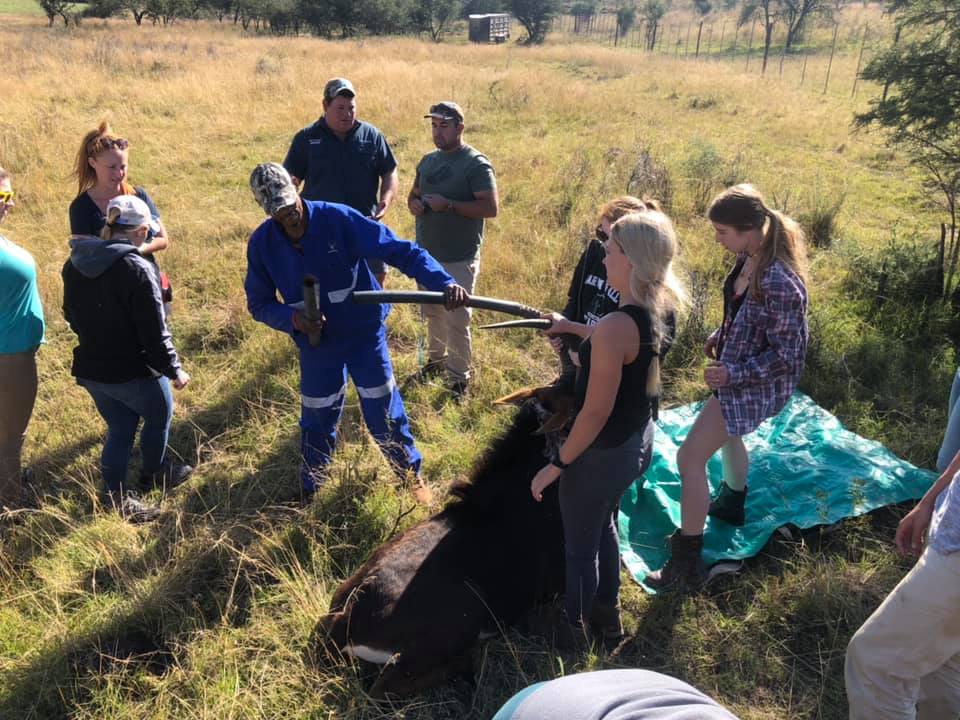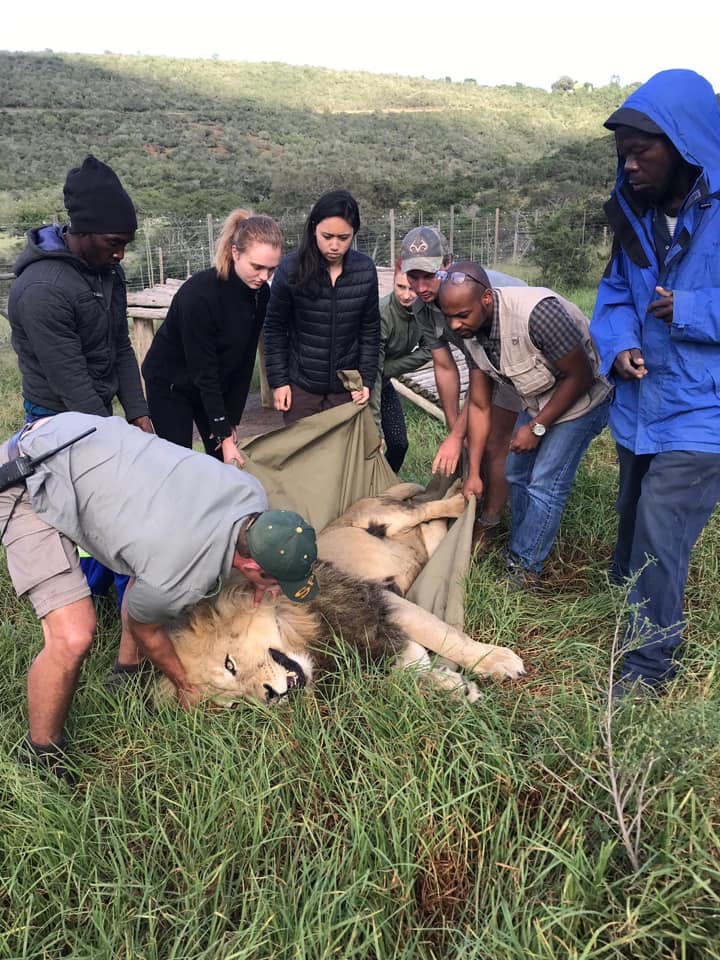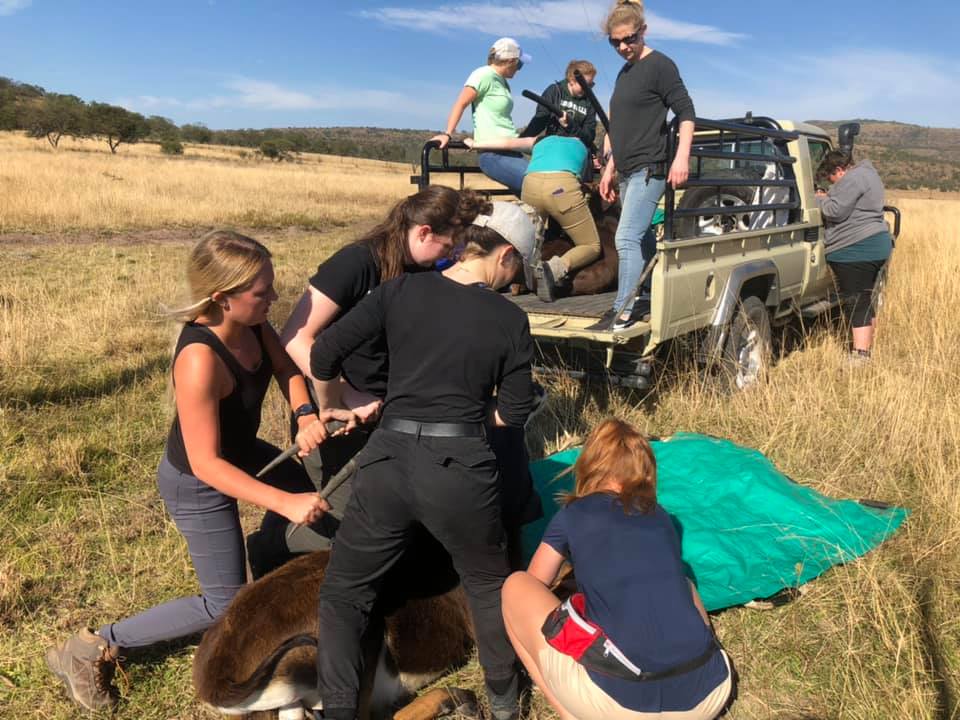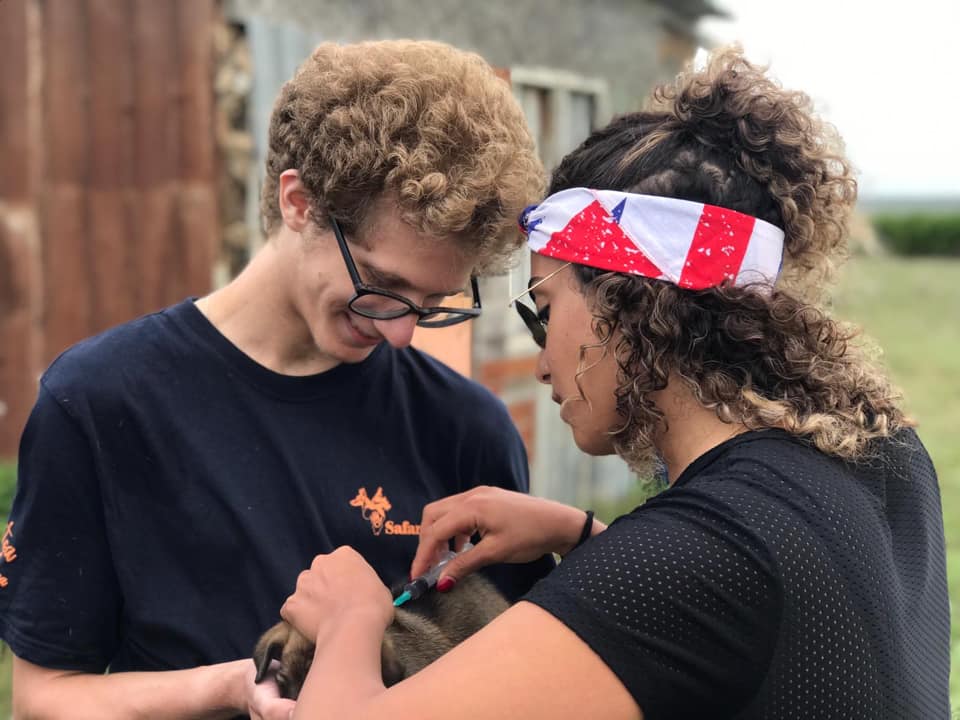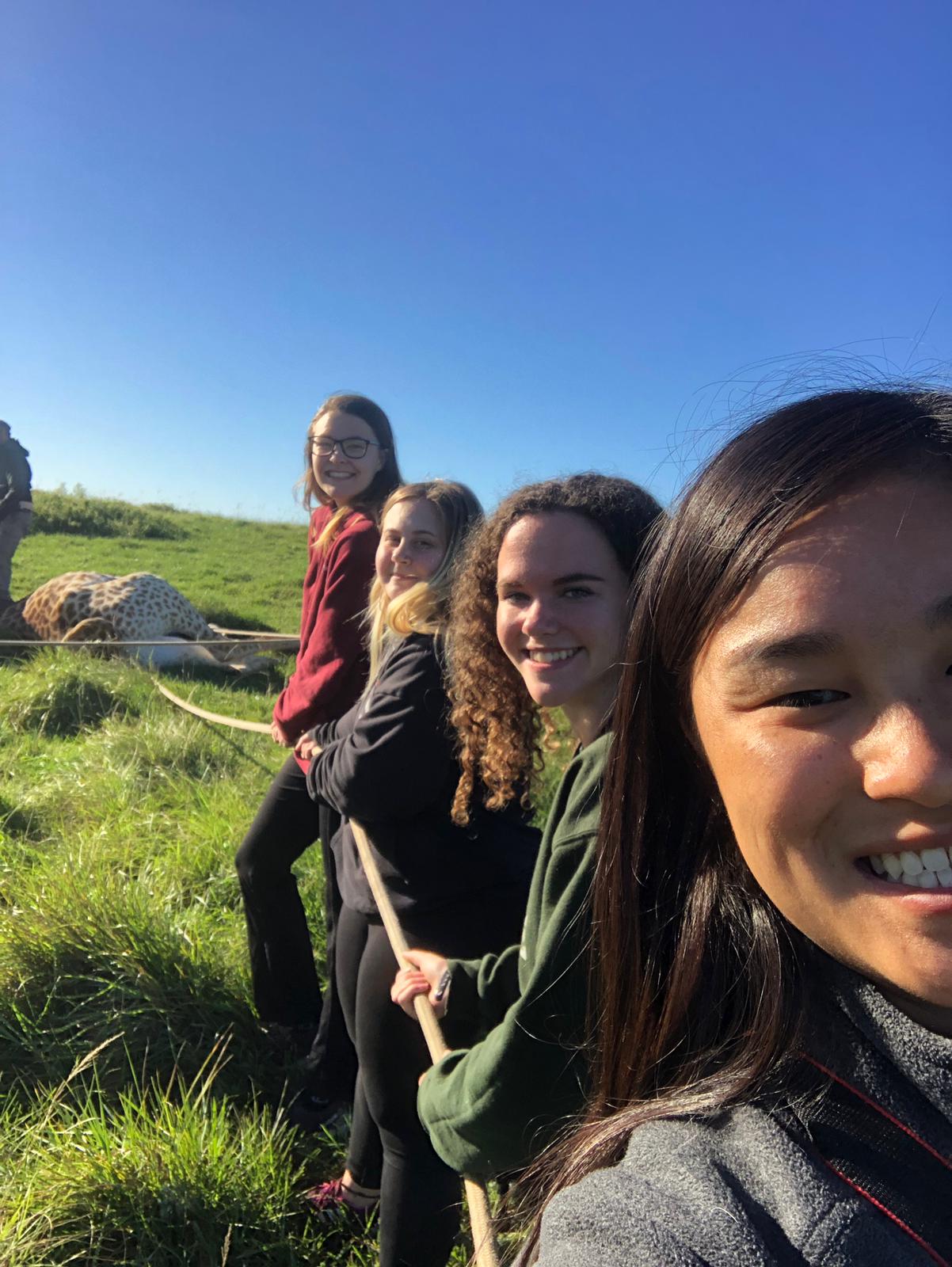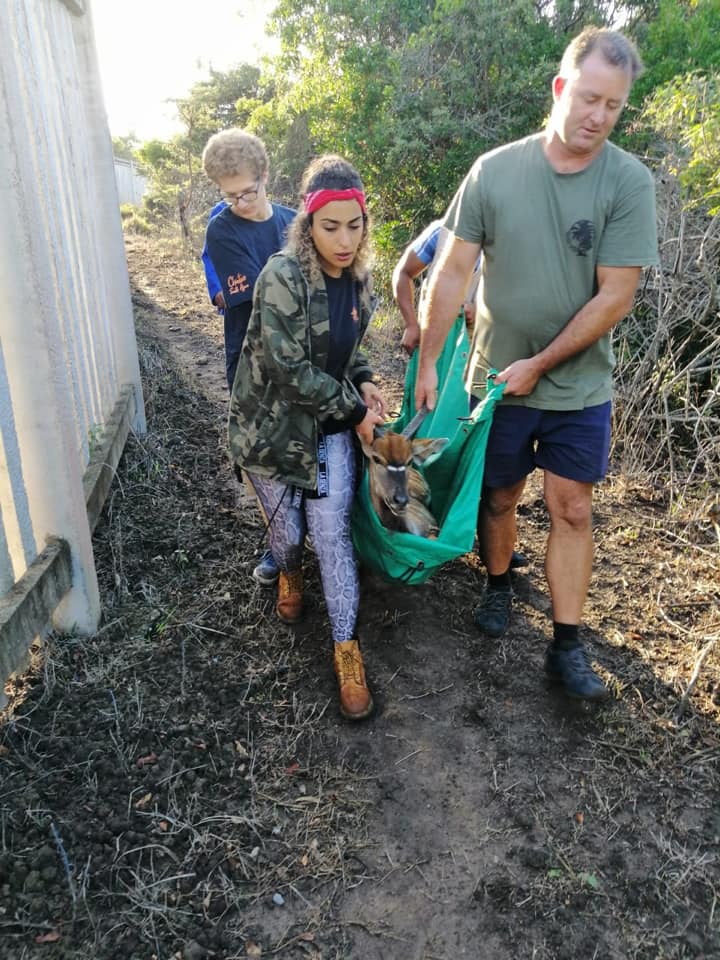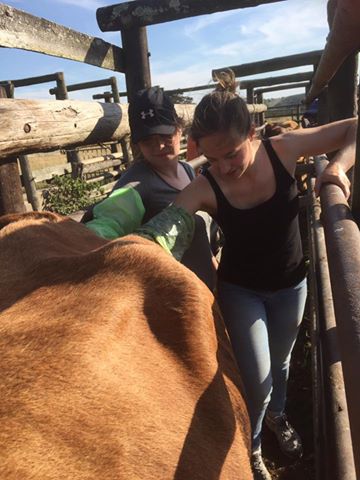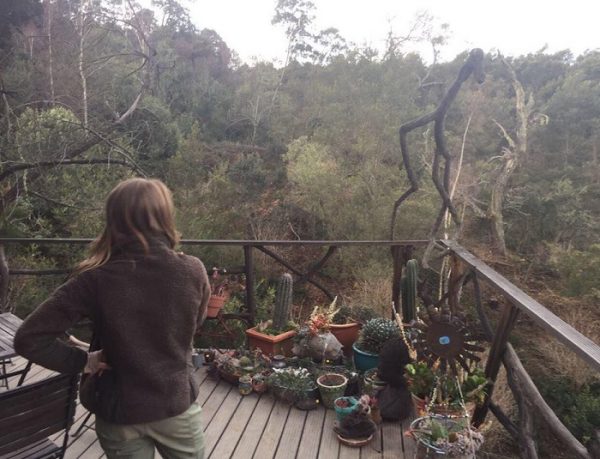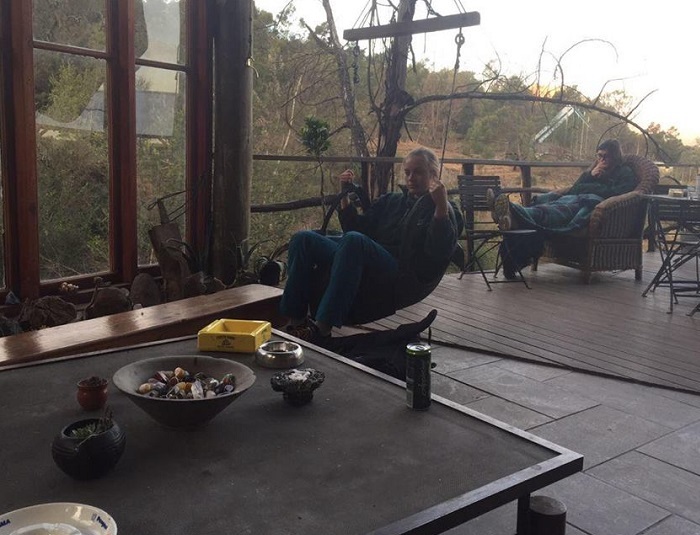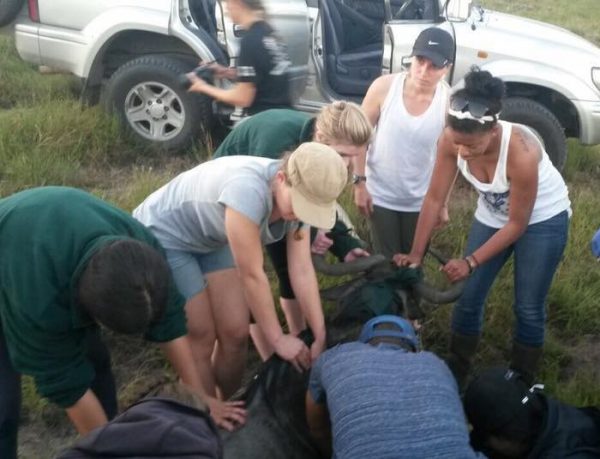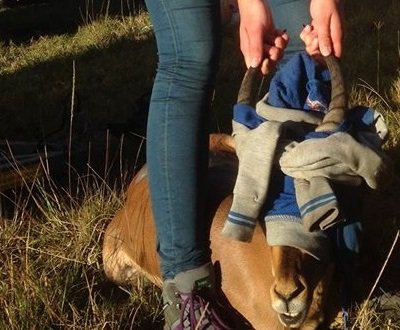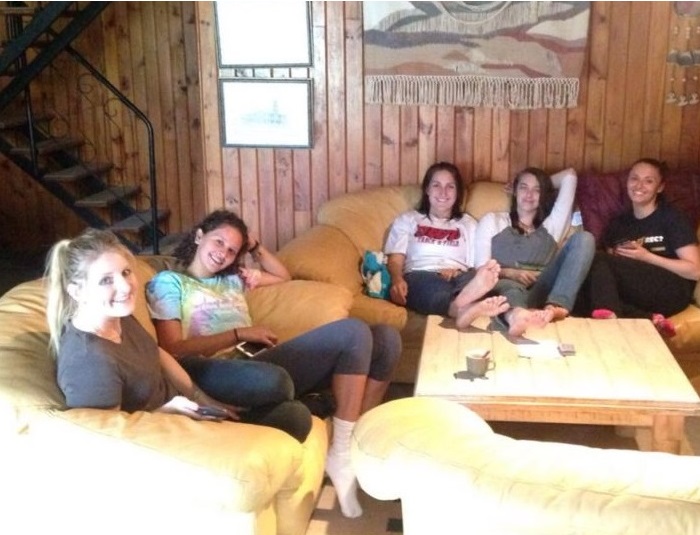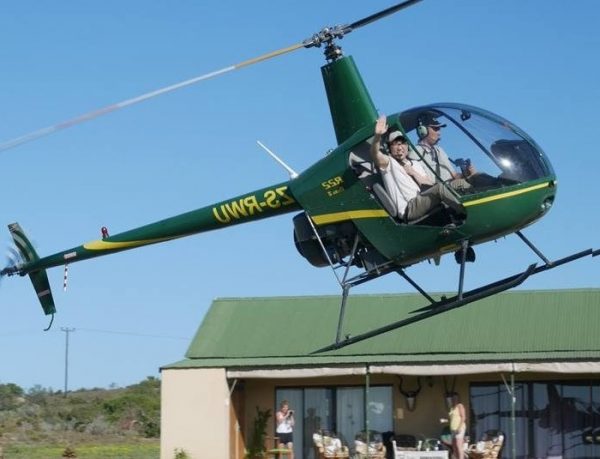South Africa
PRE-VET VOLUNTEER PROGRAM
PRE VET INTERNSHIPS IN SOUTH AFRICA
Pre veterinary internships. Anyone who has an interest in veterinary medicine or is just passionate about ANIMALS will gain knowledge on wildlife, large animal, and small animal through this program. Expect valuable hands-on experience with African wildlife, practice veterinary skills on large animal species and administer veterinary care to animals in disadvantaged communities.
As a participant in the pre-vet program, your hands-on experience will be unmatched across the globe, allowing you to get your hands dirty, so to speak. Enrichment through the myriad of zoo, reptile, game capture, community projects, as well as large and small animal operations. Under the guidance and instruction of a qualified vet, participants will learn to administer injections and other medications, gaining the necessary and required experience first-hand.
Animal interactions and enrichment are all part-and –parcel of the experience, while branching into local communities to better educate and inform local residents on proper animal care practices and procedures. A rewarding experience all unto itself.
As a participant in the pre-vet program, your hands-on experience will be unmatched across the globe, allowing you to get your hands dirty, so to speak. Enrichment through the myriad of zoo, reptile, game capture, community projects, as well as large and small animal operations. Under the guidance and instruction of a qualified vet, participants will learn to administer injections and other medications, gaining the necessary and required experience first-hand.
Animal interactions and enrichment are all part-and –parcel of the experience, while branching into local communities to better educate and inform local residents on proper animal care practices and procedures. A rewarding experience all unto itself.
- Age: min.18 - max. 70
- Location: Chintsa
- Requirements: No prior experience is required to participate in this program, however most of our participants are interested in veterinary medicine, conservation biology, animal behavior, or zoology. Since this program is often included on applications for vet schools, jobs, and other internships, most of our participants are students with a pre-vet or biological sciences focus.
- Group size: max 20 participants (divided into groups of 6 - 8 participants)
- Project duration: 1 week - 12 weeks
- Laundry: Washing machine available to do your laundry, you will need to buy your own soap
- WIFI: The house has wireless internet access
- Linen/towels: Linen provided, towels are not, bring your own towels.
Location
These projects are located in Chintsa and approx. 50 km from East London airport. A quaint town and offers a lot of activities which you can undertake in the weekend.
Requirements
No prior experience is required to participate in this program, however most of the participants are interested in veterinary medicine, conservation biology, animal behavior, or zoology. The program is often included on applications for vet schools, jobs, and other internships, thus most of the participants are students with a pre-vet or biological sciences focus.
Duration
Participants choose a 2-week program due to schedule or budget limitations, a minimum of 4 weeks based on feedback from previous participants is recommended. All program components (small animal, large animal, and wildlife) are covered within the 2-week period, and you will gain approximately 50 hours of veterinary experience.
Students are from a range of backgrounds and experience so everyone will receive the same training at the start of each task. You will usually perform the same task as other students, but some activities have advanced options for students with more experience.
Programme
When it comes to getting the necessary and essential hands-on experience required by anyone interested in veterinary studies, then this program has got your name written all over it. This is a program that allows you to gain the necessary hands-on experience on a variety of animals, including: African wildlife, large and small, farm and domestic animals of all kinds. Experiencing African wildlife first-hand, practicing and enhancing your veterinary skills on large and small animal species and administering veterinary care and services to disadvantaged communities, are all on offer through this unique pre-vet/vet program.
You are allowed to shadow the life of a mixed-practice South African veterinary service, covering the array of wildlife, large and small animals over the two-week period. Species however cannot be guaranteed as activities are planned by and large according to the needs of the community at that time.
As a hands-on program, participants will be participating in the drawing up and injection of anti-biotics and other medications. Other treatments such as chemotherapy, sedatives and euthanasia are only done by the program vet themselves. The major benefit offered to international participants to this course, is that they are afforded the opportunity to deliver injections themselves, an experience that is near impossible to find in the more developed countries of the world. Students and other participants all range from varying background, and come each bearing their own level of experience and education. This is not problem, as all participants receive the same training and task to perform. Some of the more advanced activities may be passed on to some of the more experienced participants.
African Wildlife
Vets throughout South Africa encounter a large variety of wildlife ranging across a broad range of species, and as such, participants will be involved in the various activities that surround these practices, including game capture, zoo volunteer work and reptile handling at the local reptile sanctuary.
Game Capture
Game capture involves the darting and tranquilizing of animals in the wild, either for the purposes of relocation of some form of necessary medical treatment. These task include: monitoring the animals vital signs, injecting of medication and the physical transportation of the animal. Firearm operation and safety training will be provided as student will be require to participate in dart gun target practice.
Zoo Enrichment
Participants will be providing the animals at the East London Zoo with environmental enrichment activities and tasks, allowing the animals to demonstrate their species-specific behaviours and traits, while simultaneously enhancing their mental and physical well-being. Different objects, shapes, sounds and smells are all used to provide the animals with enrichment, and this their main source of this much need enrichment process. Participants will visit the zoo for at least 1 day during the 2-week period.
Reptile Sanctuary
At the local reptile sanctuary, participant s are taught about handling, identification and husbandry of reptiles, and is an important part of the learning experience, especially when dealing with exotic veterinary medicine. A full reptile handling course is available upon request.
Large Animals
Livestock, equine and farm animals in general are a large part of veterinary practices, and is a rather large component of the practice as a whole. The large animal components have been constructed and designed according to the recommendations and prerequisites of AVMA accredited veterinary institutions. Course participants will get the opportunity to work with a wide variety of animals in both a community, and large production setting.
Small Animals
There is no shortage of poverty in South Africa, and with that being said, the access to veterinary services and animal education is few and far between. We help to treat animals and educate residents around proper animals care and control, ensuring attention is paid to their nutrition and handling. Non-Profit Clinic The Community Veterinary Clinic is a non-profit institute that is there to service the needs of the animals within the community and surrounding areas. Basic spay and neutering services are offered, helping to curb the spread of sexually transmitted diseases, aggression and malnutrition. The clinic helps to treat various illnesses and ailments, including mange, Transmissible Venereal Tumours, open wounds, Biliary and abscesses. The Community Veterinary Clinic serves as a learning centre and opportunity for the students, asking and having their questions answered by the vet themselves. Students will have the opportunity to shadow the vet, observing as they prep for surgery, observe anesthetization, patient prep and the recovery process. Student also have the chance to practice suturing on simulation skin pads.
Community Project
The animals situated in the most remote parts of the Transkei have no access to veterinary medicines or services, and as such, our community project helps bring them just that. Students can expect to treat both internal and external parasites, perform clinical exams, treat minor wounds and infections as well as deal with tick borne diseases. Getting involved and learning about the local customs and beliefs of the local community is another advantage gained by the students. Learning about Xhosa life and culture through their lives that the live, students gain a greater appreciation and understanding for the local history and heritage. Grinding maize, making mud bricks and building huts, and paying a visit to the local orphanage are all part of this all-encompassing veterinary experience.
Upon arrival
Upon arrival you will be taken to the Volunteer House to settle in, meet the rest of the group, and get in touch with friends and family via wifi. In the evening, students meet for orientation which includes a tour of the house, group introductions, and a review of the plan for the week. A welcome pack is provided with a guide to local culture, a map of the area, a list of weekend activities and trips, and coupons for local establishments.
Accommodation & meals
You will stay in Chintsa East for the majority of their program. The Volunteer House has electricity, running water, and modern bathrooms. Bedrooms are comprised of single beds or bunks beds with bedding provided (rooms sleep 4 people). Chintsa East is a short distance away from several villages, farms and game reserves, which provide access to a wide range of animals and activities. You will travel to the Community Project for at least 2 nights of their program where they stay in a permanent tented camp (tents sleep 2 people). The camp is completely off the grid but is supplied by solar power and a large rainwater reservoir. We guarantee that all housing is safe and comfortable.
Meals are simple and nutritious. Breakfast consists of cereal, fruit, eggs, toast, tea and coffee. A sandwich lunch is packed at the beginning of each day- options include meat & cheese, peanut butter & jelly, or tuna mayo, along with fruit and juice. Dinner consists of a protein, a starch, and at least 1 vegetable. We accommodate most dietary preferences including vegetarians.
These projects are located in Chintsa and approx. 50 km from East London airport. A quaint town and offers a lot of activities which you can undertake in the weekend.
Requirements
No prior experience is required to participate in this program, however most of the participants are interested in veterinary medicine, conservation biology, animal behavior, or zoology. The program is often included on applications for vet schools, jobs, and other internships, thus most of the participants are students with a pre-vet or biological sciences focus.
Duration
Participants choose a 2-week program due to schedule or budget limitations, a minimum of 4 weeks based on feedback from previous participants is recommended. All program components (small animal, large animal, and wildlife) are covered within the 2-week period, and you will gain approximately 50 hours of veterinary experience.
Students are from a range of backgrounds and experience so everyone will receive the same training at the start of each task. You will usually perform the same task as other students, but some activities have advanced options for students with more experience.
Programme
When it comes to getting the necessary and essential hands-on experience required by anyone interested in veterinary studies, then this program has got your name written all over it. This is a program that allows you to gain the necessary hands-on experience on a variety of animals, including: African wildlife, large and small, farm and domestic animals of all kinds. Experiencing African wildlife first-hand, practicing and enhancing your veterinary skills on large and small animal species and administering veterinary care and services to disadvantaged communities, are all on offer through this unique pre-vet/vet program.
You are allowed to shadow the life of a mixed-practice South African veterinary service, covering the array of wildlife, large and small animals over the two-week period. Species however cannot be guaranteed as activities are planned by and large according to the needs of the community at that time.
As a hands-on program, participants will be participating in the drawing up and injection of anti-biotics and other medications. Other treatments such as chemotherapy, sedatives and euthanasia are only done by the program vet themselves. The major benefit offered to international participants to this course, is that they are afforded the opportunity to deliver injections themselves, an experience that is near impossible to find in the more developed countries of the world. Students and other participants all range from varying background, and come each bearing their own level of experience and education. This is not problem, as all participants receive the same training and task to perform. Some of the more advanced activities may be passed on to some of the more experienced participants.
African Wildlife
Vets throughout South Africa encounter a large variety of wildlife ranging across a broad range of species, and as such, participants will be involved in the various activities that surround these practices, including game capture, zoo volunteer work and reptile handling at the local reptile sanctuary.
Game Capture
Game capture involves the darting and tranquilizing of animals in the wild, either for the purposes of relocation of some form of necessary medical treatment. These task include: monitoring the animals vital signs, injecting of medication and the physical transportation of the animal. Firearm operation and safety training will be provided as student will be require to participate in dart gun target practice.
Zoo Enrichment
Participants will be providing the animals at the East London Zoo with environmental enrichment activities and tasks, allowing the animals to demonstrate their species-specific behaviours and traits, while simultaneously enhancing their mental and physical well-being. Different objects, shapes, sounds and smells are all used to provide the animals with enrichment, and this their main source of this much need enrichment process. Participants will visit the zoo for at least 1 day during the 2-week period.
Reptile Sanctuary
At the local reptile sanctuary, participant s are taught about handling, identification and husbandry of reptiles, and is an important part of the learning experience, especially when dealing with exotic veterinary medicine. A full reptile handling course is available upon request.
Large Animals
Livestock, equine and farm animals in general are a large part of veterinary practices, and is a rather large component of the practice as a whole. The large animal components have been constructed and designed according to the recommendations and prerequisites of AVMA accredited veterinary institutions. Course participants will get the opportunity to work with a wide variety of animals in both a community, and large production setting.
Small Animals
There is no shortage of poverty in South Africa, and with that being said, the access to veterinary services and animal education is few and far between. We help to treat animals and educate residents around proper animals care and control, ensuring attention is paid to their nutrition and handling. Non-Profit Clinic The Community Veterinary Clinic is a non-profit institute that is there to service the needs of the animals within the community and surrounding areas. Basic spay and neutering services are offered, helping to curb the spread of sexually transmitted diseases, aggression and malnutrition. The clinic helps to treat various illnesses and ailments, including mange, Transmissible Venereal Tumours, open wounds, Biliary and abscesses. The Community Veterinary Clinic serves as a learning centre and opportunity for the students, asking and having their questions answered by the vet themselves. Students will have the opportunity to shadow the vet, observing as they prep for surgery, observe anesthetization, patient prep and the recovery process. Student also have the chance to practice suturing on simulation skin pads.
Community Project
The animals situated in the most remote parts of the Transkei have no access to veterinary medicines or services, and as such, our community project helps bring them just that. Students can expect to treat both internal and external parasites, perform clinical exams, treat minor wounds and infections as well as deal with tick borne diseases. Getting involved and learning about the local customs and beliefs of the local community is another advantage gained by the students. Learning about Xhosa life and culture through their lives that the live, students gain a greater appreciation and understanding for the local history and heritage. Grinding maize, making mud bricks and building huts, and paying a visit to the local orphanage are all part of this all-encompassing veterinary experience.
Upon arrival
Upon arrival you will be taken to the Volunteer House to settle in, meet the rest of the group, and get in touch with friends and family via wifi. In the evening, students meet for orientation which includes a tour of the house, group introductions, and a review of the plan for the week. A welcome pack is provided with a guide to local culture, a map of the area, a list of weekend activities and trips, and coupons for local establishments.
Accommodation & meals
You will stay in Chintsa East for the majority of their program. The Volunteer House has electricity, running water, and modern bathrooms. Bedrooms are comprised of single beds or bunks beds with bedding provided (rooms sleep 4 people). Chintsa East is a short distance away from several villages, farms and game reserves, which provide access to a wide range of animals and activities. You will travel to the Community Project for at least 2 nights of their program where they stay in a permanent tented camp (tents sleep 2 people). The camp is completely off the grid but is supplied by solar power and a large rainwater reservoir. We guarantee that all housing is safe and comfortable.
Meals are simple and nutritious. Breakfast consists of cereal, fruit, eggs, toast, tea and coffee. A sandwich lunch is packed at the beginning of each day- options include meat & cheese, peanut butter & jelly, or tuna mayo, along with fruit and juice. Dinner consists of a protein, a starch, and at least 1 vegetable. We accommodate most dietary preferences including vegetarians.
Dates
The project starts each Monday and the minimum duration is 3 weeks. (2 weeks might be possible, but please first consult with us)
2023
Every Monday, last start date is 27 November
Rates
Contact us for more weeks
Rates includes
The project starts each Monday and the minimum duration is 3 weeks. (2 weeks might be possible, but please first consult with us)
2023
Every Monday, last start date is 27 November
Rates
| Duration | Fees |
|---|---|
| 3 weeks | $3250 |
| 4 weeks | $ 4050 |
Contact us for more weeks
Rates includes
- Safe and comfortable accommodation
- All meals
- Airport transfers
- Project-related transportation
- Wi-fi access
- Washing facilities
- Permits & entry fees
- Welcome packet with coupons for local establishments
- T-shirt
- Supplies & medication for non-profit community work
- Intern Africa will assist you in finding a suitable flight, apply for a possible visa, provide information on travel insurance, immunizations, travel and other required details.
- Flights
- Visa fees (if required)
- Travel Insurance
- Weekend activities and trips
